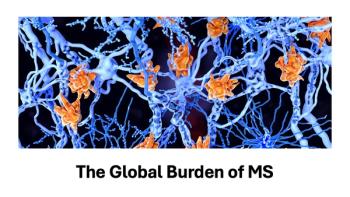
RA Associated with Increased Risk of Heart Attack, Stroke, Finds Meta-Analysis
The results argue for close clinical management of people with rheumatoid arthritis, say the authors of the meta-analysis that included 14 studies.
A new meta-analysis confirms that rheumatoid arthritis (RA) is a significant risk factor for cardiovascular disease, and for myocardial infarction and stroke, in particular.
The report, which was
Previous research has shown that patients with RA have nearly double the risk of CVD compared to the general population, noted corresponding author Neelum Ali, M.D., of the University of Health Sciences, in Lahore, Pakistan, and colleagues.
“This elevated risk of CVD is observed not only in patients with early stage rheumatoid arthritis but also in individuals with subclinical rheumatoid arthritis (rheumatoid arthritis yet to be diagnosed),” they wrote.
The increased risk also appears to hold true independent of traditional CVD risk factors a patient may have, they said.
In order to better understand the exact risk and reasons behind it, Ali and colleagues conducted a search of several scientific databases to identify studies published between January 1, 2005, and May 15, 2023, that reported cardiovascular outcomes in patients with RA. In total, 14 studies met their inclusion criteria.
Six of the studies the investigators identified compared the risk of CVD using a composite category of “cardiovascular events.” Taken together, those studies showed people with RA had a risk ratio of 1.35 of having a cardiovascular event, compared to those without RA.
Seven studies looked specifically at stroke risk among people with RA. All of the studies found the risk was higher in the RA cohort, with a pooled risk ratio of 1.30.
The highest risk, though, was for myocardial infarction. The 13 studies that compared myocardial infarction risk found a pooled risk ratio of 1.43.
The authors said inflammation likely plays a major role in boosting CVD risk.
“The pro-inflammatory cytokines involved in rheumatoid arthritis, such as tumor necrosis factor-alpha (TNF-a) and interleukin-6 (IL-6), contribute to the development of atherosclerosis by directly damaging the endothelium of blood vessels,” they said. “They also interfere with the vascular repair system and modulate classic risk factors.”
However, Ali and colleagues said therapies for RA may impact risk levels. They said therapies such as the TNF-inhibitor infliximab (sold under the brand name Remicade) can lead to improvement in endothelial function and thereby reduce the risk of cardiovascular disease.
“This finding aligns with previous research that has demonstrated a relationship between disease severity and the occurrence of CVD,” they said.
The authors said these data support the idea that clinical management of patients with rheumatoid arthritis is important to prevent CVD. However, they noted that guidelines for patients with RA vary between Europe and the United States, with only the European guidelines explicitly calling for special attention to be paid to cardiovascular risk. Ali and colleagues also conceded that more investigation is needed to look specifically at the risk of CVD events other than myocardial infarction and stroke.
“Further research is warranted to address the identified gaps and improve risk assessment strategies for patients suffering from rheumatoid arthritis, considering a broader range of cardiovascular conditions,” they said.
Newsletter
Get the latest industry news, event updates, and more from Managed healthcare Executive.























